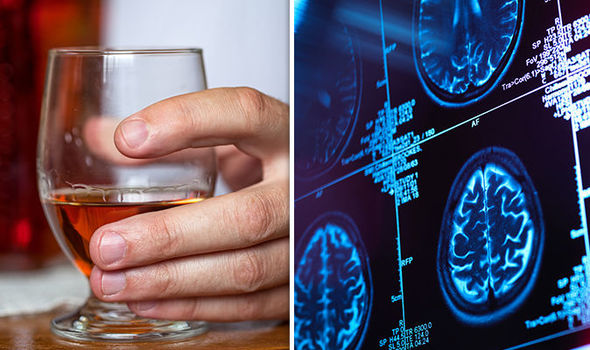A new study has suggested that mild or moderate alcohol intake could be associated with a reduction in a person’s risk of dementia, whereas heavy drinking is linked to an increased risk.
Dementia, according to the World Health Organisation, is an umbrella term for several diseases affecting memory, other cognitive abilities and behaviour that interfere significantly with a person’s ability to maintain their activities of daily living. Although age is the strongest known risk factor for dementia, WHO said it is not a normal part of ageing.
The global health body noted that more than 55 million people live with dementia worldwide, adding that there are nearly 10 million new cases every year.
As reported by Medical News Today, the study conducted in South Korea found that long-term, light drinkers had a 21 per cent lower risk of dementia compared with long-term non-drinkers. People who sustained a moderate alcohol intake had a 17 per cent decreased risk. Sustained heavy drinkers, by contrast, had an 8 per cent increased risk of dementia compared with abstainers.
The study results, Medical News Today reported are already published in JAMA Network OpenTrusted Source.
The study also found that non-drinkers who started to drink at low levels had a 7 per cent reduced risk of dementia compared with those who continued to abstain.
The new study drew upon data from the Korean National Health Insurance Service, which provides a free health examination every two years to all insured individuals aged 40 years or older.
The examination comprises a questionnaire about participants’ medical history and lifestyle, such as drinking, smoking, and exercise.
The researchers, led by Dr. Keun Hye Jeon at Cha University in Gumi, Korea, looked at data from health examinations in 2009 and 2011.
They excluded all participants with an existing diagnosis of dementia, cancer, or cardiovascular disease, and those who died within a year of their second examination.
After exclusions, there were almost 4 million participants with a mean age of 55 years.
The scientists divided participants into four categories according to their alcohol consumption:
- none — 0 grams (g) of alcohol per day
- mild — less than 15 g per day
- moderate — 15–29.9 g per day
- heavy — at least 30 g per day.
This study followed participants for a mean of 6.3 years and recorded diagnoses of different types of dementia, including Alzheimer’s disease and vascular dementia.
Medical News Today further reported that by comparing participants’ alcohol consumption in 2009 and 2011, the researchers were able to estimate the risks associated with maintaining, reducing, or increasing alcohol intake. Most studies only record alcohol intake at one-time point.
The researchers adjusted their results to account for factors such as age, sex, exercise, income, and existing medical conditions.
Reacting to the study in a chat with Medical News Today, Dr. Sadie Boniface, head of research at the Institute of Alcohol Studies in London, United Kingdom, and a visiting researcher at King’s College London, said, there are no convincing health grounds on which to drink alcohol.
She said, “Even if there were protective effects of small amounts for some conditions, these are outweighed by other health risks.
“For example, there’s concrete evidence of increased risks of alcohol-related cancers even for small amounts of alcohol.”
Dr. Boniface, however, pointed out that the moderate drinkers may have had other health behaviors or life circumstances that protected them against dementia, which were not fully accounted for in the study.
“In other areas, such as heart disease, apparent protective effects of small amounts of alcohol consumption have been explained by non-drinkers having pre-existing health conditions or in worse health on average.
“It’s too early to say if the same may be true for dementia,” she said.
shippingposition
Kindly like us on Facebook/twitter














